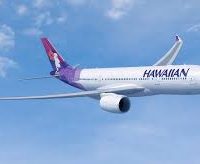(Press Release)…The government’s priority is the reunification of families separated because of the American Samoa border closure. Lessons learned from the first test flight require that the government defines and clarifies eligibility criteria in prioritizing repatriation passengers. The priority list based on the “first to register” on the DOH website remains the same, however, the government will scrutinize the legitimacy of stranded residents and have added additional priority categories to address the collective interests of the government and our community.
The repatriation flights are NOT intended to be used for recreational or unwarranted travel into American Samoa. The government also has an interest in prioritizing medical referral patientswho need to return home, repatriating college students impacted by changing school schedules, essential workers who need to travel to American Samoa and the return of ASG personnel. Thus, the government has increased seats for the incoming flight to accommodate these specific hardship cases.
1. Repatriation of Residents: All repatriation cases require proof of American Samoa residency and payment of the cost share before they enter quarantine prior to entry into the Honolulu quarantine facility. The cost share has been set at $500 per person for the March 10, 2021, flight. Lap children under the age of 2 years old will travel for free. To help alleviate the financial hardship on passengers, the government is providing partial subsidy for the cost share and subsidize the costs of lap children. 120 seats are allocatedfor this category.
2. Medical Referrals: LBJ and Medicaid referral patients shall be prioritized for repatriation. Medicaid and LBJ will receive 30 seats on every flight to accommodate returning patients who have completed their medical appointments. The policy is not to add unnecessary mental and emotional stress and financial burden on referral patients with medical conditions whose recovery and wellbeing should be protected.
3. GO’s Reserve: The government through the Governor’s Office will have 50 seats to be used for ASG purposes and hardship cases—on a case-by-case basis. All requests must be submitted to the Governor’s Office. Examples of hardship cases are as follows:
a. Students: Our children from American Samoa, who are in college in the U.S., have also been greatly impacted with the COVID pandemic that caused the closure of universities. This has forced their families to coordinate alternative housing while students do virtual learning. The stress, fear for their safety, emotional and psychological toll on our children and their parents cannot be understated. Eligible students are those who are enrolled in college or graduated from college in 2020.
b. Essential Employees: Any private sector employer that has an essential employee that needs repatriation, may request priority consideration. The government’s interest is to support the ongoing operations of our private sector as they are a fundamental player in our territory’s economic stability. Proof of employment must be provided for authentication of employment status. No “new” employment hires shall be accepted to avoid bypassing and frustrating the conditions of repatriation of legitimate residents. Requests for essential employees must be made by the employer.
4. All seats not used by medical referrals, essential employees, students or GO/ASG Reserve shall be reassigned to repatriation passengers.
NOT ELIGIBLE
Tourists, temporary visitors, transit visitors and American Samoan US residents who want to visit their families in American Samoa for any reason. No animals will be allowed on the repatriation flights.




